I am so excited to share with you a conversation I had with Otisa Eads for episode four!
Our conversation is largely about how conflicts are influenced by intersectionality, a concept that refers to the ways in which race, gender, class, ability, and other social locations interact, especially within inequitable systems and societies.
We cover many topics, including:
What social locations are, and why it can be helpful to reflect on and discuss them
What violence really is, and the personal and social costs of “peace keeping”
How stereotypes and social expectations can impact how conflicts are handled
Ways to communicate in order to invite transparency and also ensure choice
How noticing capacity can help us make compassionate choices and honor choices others make
How having awareness of and compassion for ourselves prepares us to be in relationship, including as a third-party to others’ conflicts
As always, feel free to leave a comment to let me know your thoughts, and if you appreciate this episode please share it with others. (You could leave me a tip if you wish too.)
Additional resources (including ones mentioned in this episode):
More about the concept of intersectionality from Forbes and BBC
Free worksheet for considering your own social locations on my Patreon
Best descriptions I’ve seen of class experiences, from Resource Generation
Speech that references “negative peace” given by Martin Luther King Jr. when he received the Nobel Peace Prize
The Radical Implications of Staying within Capacity and You’re Not a Bad Person: How Facing Privilege Can Be Liberating, both by Miki Kashtan
From Sarah Peyton: What are Unconscious Contracts and How to Work With Them
Article about Resmaa Menakem’s concept of “invited reps” and a recording about it from On Being





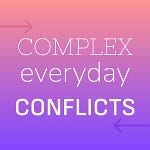


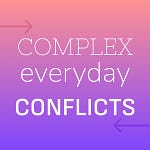
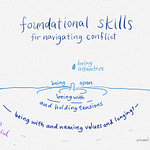
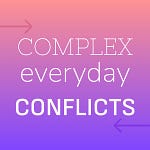
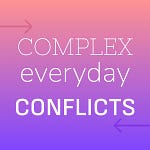
Share this post